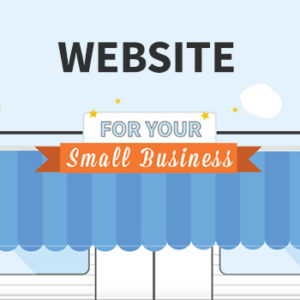What You Need For Your Small Business Website
By Debbie Gregory.
You know you need a great website for your small business. But before you start building your website, you should know exactly what you want it to do for your business. A well-designed site does not begin with a beautiful layout or catchy writing. It begins with clarity of purpose, answering the question: what do you want people to do once they get to your site?
The answer will depend on your business, and will determine how robust your site should be. Do you want visitors to purchase a product, sign up for your email list, read your content? Your website should actively be functioning to meet the needs of your business.
Your “home page” is usually the place where visitors will land first. This is where you will have the opportunity to introduce your company and feature your most valuable content. This could include an explanation of your services / products, reasons visitors should work with you / buy from you, a link to your blog, customer reviews, and a call to action. It should also have links to your social media, and trust signals such as any money back guarantees, payment security certifications and accreditations. To make your website especially user-friendly, it is a good idea to include a search bar.
Another key page is your “about us” page. People do business with other people, and visitors will want to know who the people behind your company are. The page should give a brief summary of who you are, who your employees are, how you are different from your competitors, and your company story.
An FAQ page is a self-service area where your customers can get answers to the most frequent questions you are asked. Chances are, their question will fall into this category, and will save you the time it would take to answer these individually. On the off chance that there are questions and answers not addressed here, make sure you include contact information on your site. This can be in the form of your social media pages, a phone number or an email address. Some companies prefer to use a contact form instead of listing their email address for spam prevention purposes.
A privacy policy is must for every website as it lets the visitor know what you’ll do with the personal information they give you. Here you will detail if you use cookies, what you will do with email addresses (especially if you have a registration form for a mailing list), and whether or not this information will be shared with third parties. You will also want to state your terms and conditions, which are the rules and guidelines you expect users to adhere to.
Optional pages would include a blog page, testimonials/reviews, press or news page, and a sitemap.
A website with 200 words and a single picture can be more powerful than a website with dozens of pages and several blog posts if it well designed to serve your ultimate purpose, whatever you define that step to be.
Veteran and Military Business Owners Association, VAMBOA,








